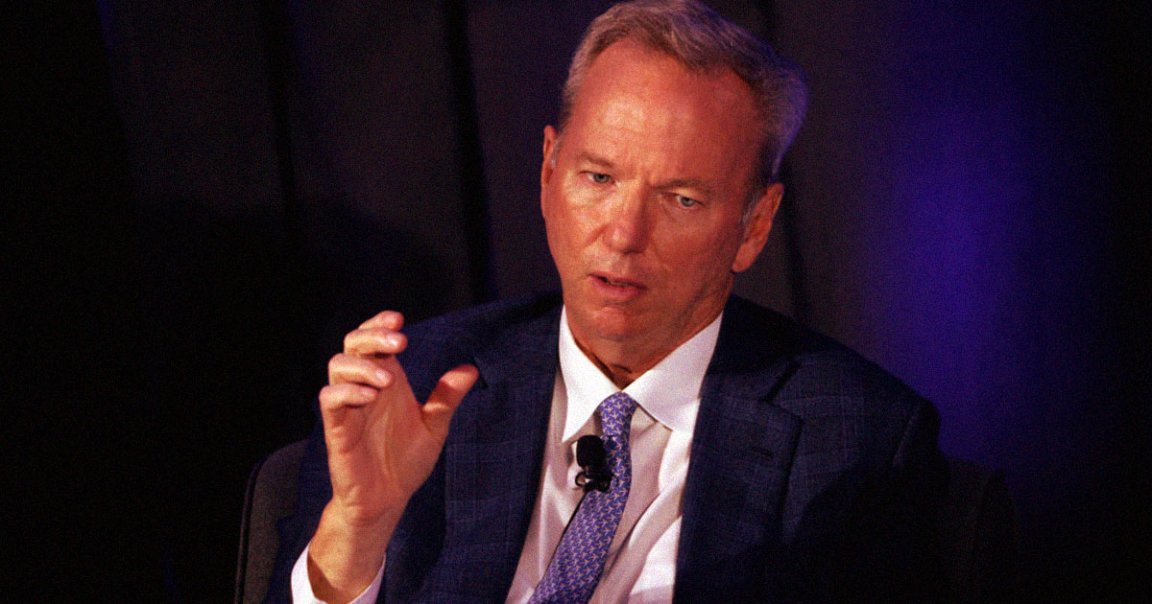
Self-Regulating
He might not helm Google anymore, but Eric Schmidt is absolutely still thinking like a tech CEO.
In an interview with NBC‘s “Meet the Press,” Schmidt laid bare his techno-libertarian outlook when asked about whether artificial intelligence needs “guardrails” given its propensity to lie, confabulate, and, well, go kind of mad.
“When this technology becomes more broadly available, which it will, and very quickly, the problem is going to be much worse,” the former Google executive told MTP’s Jacob Ward. “I would much rather have the current companies define reasonable boundaries.”
Sounds like a job for the government, right? Nope! Instead, Schmidt argued that regulation should be left up to AI firms because “there’s no way a non-industry person can understand what is possible.”
“There’s no one in the government who could get it right,” he added.
Historic Disinterest
This stuff, it seems, is Schmidt’s bread and butter.
Back in 2021, the man who helmed Google first as CEO and then chairman co-released a book with Nixon-era Secretary of State Henry Kissinger about how dangerous unregulated AI could be for our future. Now, though, it sounds like he thinks the creators of AI should be trusted with its regulation, even though they have a clear conflict of interest.
During recent testimony before the House Oversight Committee, Schmidt also laughed off European attempts to regulate AI.
“[The EU has] a law which requires that the system be able to explain itself if it’s used in something critical,” he said during the early May hearing. “By definition, these systems today can’t explain themselves — by the way, nor could your teenager if you have a teenager.”
In April, he even went so far as to suggest that if, as many experts have suggested, the US puts a six-month “pause” on AI tech to study and head off its dangers, the US may lose its edge to China.
“I’m not in favor of a six-month pause, because it will simply benefit China,” Schmidt told the Australian Financial Review. “What I am in favor of is getting everybody together ASAP to discuss what are the appropriate guardrails.”
It now seems that by “everybody,” he primarily meant “industry players” — and given how breathless AI CEOs seem to be about the possibility of artificial general intelligence, it’s not hard to foresee where they’d land when it comes to regulation.
More on Google’s AI game: Leaked Google Memo Shows Fear of Losing the AI Race, But Not to the Foe You’d Think